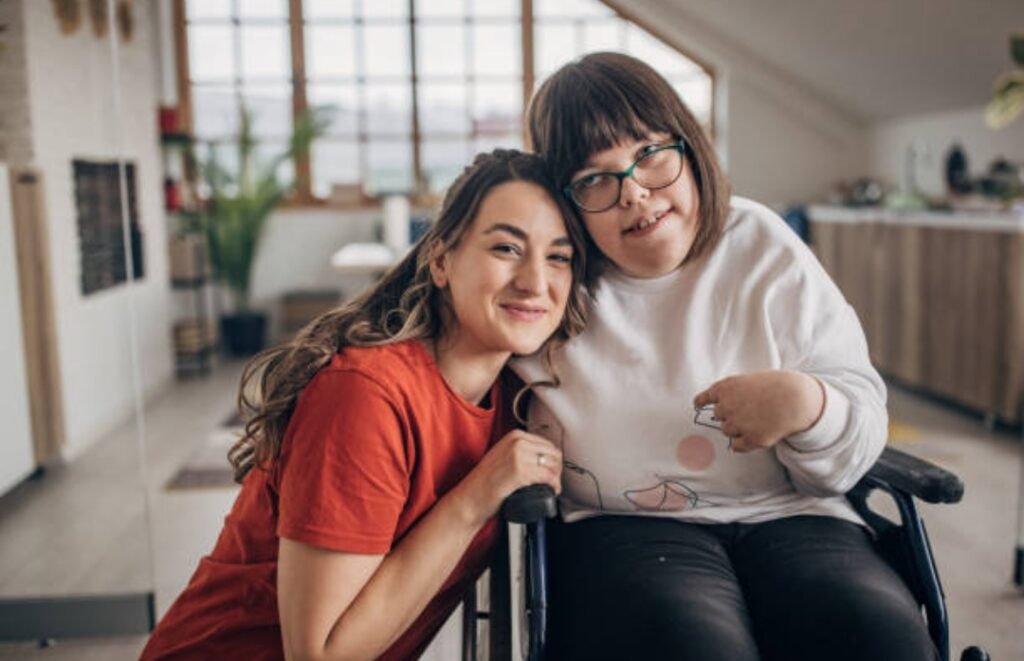Life is richer with purpose, connection, and growth. For many adults living with disabilities, structured programs do more than fill time—they unlock independence, foster creativity, and build community. These programs create daily opportunities for skill development and meaningful engagement, supporting participants to achieve their goals and thrive.
This post highlights the tangible benefits of day programs, demonstrating how they empower adults with disabilities and foster inclusive communities.
A Place for Support and Belonging
A key strength of day programs is the strong sense of belonging they nurture. It’s more than attending sessions; it’s joining a place where you’re welcomed, understood, and supported.
For example, a participant who has struggled with isolation may find comfort in a group art class, where everyone celebrates each other’s creativity. Support workers and facilitators adapt materials and pacing to fit individuals’ needs, ensuring every activity is accessible. This helps people express themselves without fear of judgment.
The emotional benefits are just as important as the practical ones. Knowing there’s a place to go where you feel valued can boost self-esteem, improve mood, and encourage participation in the wider community.
Building Skills for Everyday Life
Many day programs for disabled adults focus on helping participants build skills. These often extend beyond the program, providing participants with tools to use at home, in the workplace, or in social settings.
Practical training might include:
- Cooking classes where participants learn to prepare simple, healthy meals.
- Budgeting workshops that help manage personal finances more confidently.
- Public transport training to navigate the community safely and independently.
These activities are hands-on. For instance, someone might practice cooking skills during the week and then confidently prepare lunch for the family on the weekend. Or a participant might navigate the bus independently for the first time, gaining the freedom to visit friends or attend events.
Skill-building often blends everyday activities with creative or recreational ones. Participants might take music lessons, garden, or join technology classes. This keeps learning practical and enjoyable.
Fostering Social Connections
Humans are social creatures. Friendships grow in spaces where people share experiences. Day programs bring together people from diverse backgrounds who might not otherwise have the opportunity to meet. This creates opportunities for lasting connections.
Group activities, such as board games, sports, or collaborative projects, help participants develop communication and teamwork skills. Even small moments, such as chatting over a cup of tea, can strengthen social bonds.
These connections
Ons often serve as a lifeline for individuals who may feel excluded from other social circles. They also offer families peace of mind, knowing their loved ones have a network of friends and a support system beyond the home.
Community Engagement and Inclusion
Many day programs also focus on community involvement. This can include volunteering at local events, visiting museums, attending cultural festivals, or partnering with local businesses.
Community engagement through day programs enriches lives, builds confidence, and celebrates abilities—helping both participants and communities learn, collaborate, and appreciate the diversity of their experiences.
For example, a group might volunteer at a community garden, helping plant flowers and vegetables. This provides hands-on experience and fosters a sense of contribution and pride in the shared space.
Tailored to Individual Needs
No two individuals are alike. The most effective programs tailor their approach to meet each participant’s needs and goals. Some focus on physical wellness with gentle exercise or swimming. Others emphasize creative outlets, like pottery, dance, or writing workshops.
Careful planning ensures that activities remain accessible and engaging for everyone. Adapting pace, using assistive technology, or providing one-on-one support helps participants thrive. This flexibility means everyone feels included.
How to Access These Opportunities
If you or someone you care about is considering daytime support options, consider exploring the diverse day programs available for adults with disabilities in your area. Many programs offer trial days to allow participants to experience the program, meet the staff, and determine if the activities align with their interests and goals.
When choosing a program, consider factors like:
- Location and transport options
- A variety of activities are offered
- Staff qualifications and training
- Opportunities for community involvement
- Flexibility to tailor the program to individuals. Research helps you find a place where the participant feels comfortable, respected, and inspired.
Why These Programs Matter
Day programs are essential for a more inclusive society. They empower individuals to discover strengths, live independently, and form real relationships, focusing on potential rather than limitations. Programs help create a community where everyone can participate. This might be through work, art, volunteering, or enjoying social activities together. Inclusion is not just a concept—it is something we create through opportunity, understanding, and support. support.
A Step Toward a More Inclusive Future
The value of these programs reaches beyond the individuals who attend them. Families gain peace of mind knowing their loved ones are engaged in safe, enriching activities. Local businesses and organizations benefit from the skills and enthusiasm participants bring when involved in community projects. Society as a whole becomes more compassionate and aware of its members. Creating inclusive spaces is a shared job. Whether you are a participant, family member, volunteer, or just a supportive community member, you help shape a future where all people have the chance to thrive.
In the words of those who work in the field of social inclusion, it’s about “removing barriers and opening doors.” And for many adults with disabilities, day programs are that open door—a place to grow, connect, and belong.

